Search
51314-3985-Methanol-Induced Internal Stress Corrosion Cracking in a Northern Petroleum Pipeline
Also Purchased
07663 The Effect of Oxygenated Methanol on Corrosion in Sour Wet Gas Environments
Product Number:
51300-07663-SG
ISBN:
07663 2007 CP
Publication Date:
2007
$20.00
97493 Materials Experience in Methanol Reforming Units
Product Number:
51300-97493-SG
ISBN:
97493 1997 CP
$20.00
04240 Role of Methanol on Pitting of SS316 - Preliminary Results
Product Number:
51300-04240-SG
ISBN:
04240 2004 CP
$20.00




